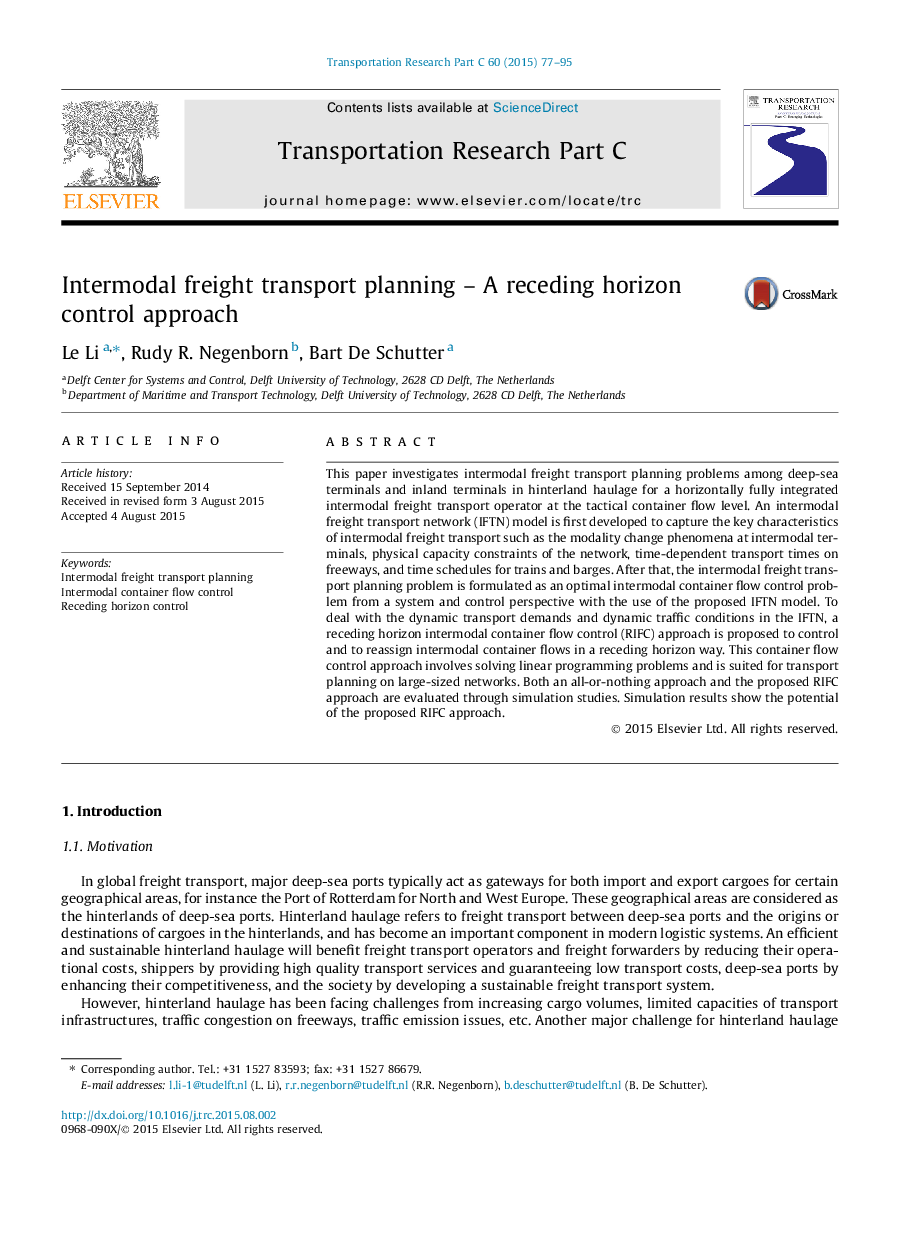| Article ID | Journal | Published Year | Pages | File Type |
|---|---|---|---|---|
| 6936550 | Transportation Research Part C: Emerging Technologies | 2015 | 19 Pages |
Abstract
This paper investigates intermodal freight transport planning problems among deep-sea terminals and inland terminals in hinterland haulage for a horizontally fully integrated intermodal freight transport operator at the tactical container flow level. An intermodal freight transport network (IFTN) model is first developed to capture the key characteristics of intermodal freight transport such as the modality change phenomena at intermodal terminals, physical capacity constraints of the network, time-dependent transport times on freeways, and time schedules for trains and barges. After that, the intermodal freight transport planning problem is formulated as an optimal intermodal container flow control problem from a system and control perspective with the use of the proposed IFTN model. To deal with the dynamic transport demands and dynamic traffic conditions in the IFTN, a receding horizon intermodal container flow control (RIFC) approach is proposed to control and to reassign intermodal container flows in a receding horizon way. This container flow control approach involves solving linear programming problems and is suited for transport planning on large-sized networks. Both an all-or-nothing approach and the proposed RIFC approach are evaluated through simulation studies. Simulation results show the potential of the proposed RIFC approach.
Keywords
Related Topics
Physical Sciences and Engineering
Computer Science
Computer Science Applications
Authors
Le Li, Rudy R. Negenborn, Bart De Schutter,
